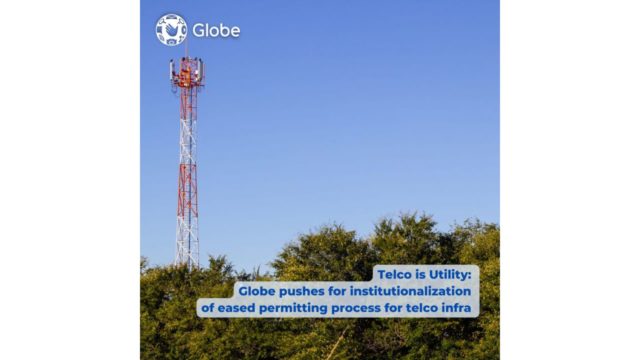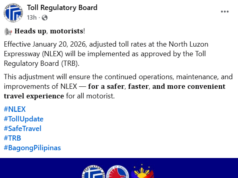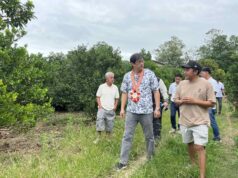Globe, the mobile leader and top digital solutions provider, has called for the institutionalization of a streamlined permitting process for ICT infrastructure to allow faster network builds. This will serve to support the steady rise in connectivity needs across the country amid the greater shift to digital platforms.
Speaking at the Anti-Red Tape Authority’s (ARTA) Telco Sector Summit, Michelle Ora, Globe Vice President for Site Lifecycle Management Services, reiterated Globe’s call for telco services to be regarded as a utility in developments, that is necessary and basic service similar to water and power.
Government eased the permitting process for telco infrastructure under the Bayanihan to Recover As One (Bayanihan 2) law, which was enacted at the height of the pandemic, to expand the country’s capacity for connectivity as demand soared.
Globe is pushing for the permanency of these provisions to sustain the infrastructure builds, aligned with the government’s aspiration for nationwide digital adoption and digital transformation in the country. Once a permanent aspect of doing business, local government units will be compelled to issue local ordinances requiring compliance to telco infrastructure standards.
“The assistance of ARTA and local government units in the implementation of the Bayanihan 2 law enables us to proceed with the demand for connectivity on the road to a #1stWorldNetwork,” Ora said at the Summit.
Through the eased permitting process, Globe was able to ramp up its builds, securing nearly 12,000 permits for the construction of new facilities over the last three years. From 2020 to the third quarter of 2022, Globe built 3,600 new sites and connected 1.4 million fiber-to-the-home lines. In all, it served a cumulative 124.5 million wireless and fixed line subscribers in 2020 and 2021.
In comparison, before the streamlined permitting process, Globe was able to build just 500 towers in 2018 and 1,100 in 2019.
Ora emphasized the importance of enabling telco infrastructure which is crucial to ensure equitable progress and supports Filipinos in their day-to-day life, with the growing digitalization of everyday activities, from financial transactions and business meetings to school, work and recreation.
“Fiber internet enables digitally connected homes and cities and is the lifeline of every Filipino. Fiber is the gold standard to enable a digital lifestyle. The internet and connectivity need to be treated like power and water,” she said, pushing for full replacement of existing copper lines into fiber lines.
She cited the importance of working with government agencies such as ARTA, the Department of Information and Communications Technology, LGUs and other telcos to finally institutionalize national and local legislation that would regard “telco as a utility.”
Globe has long been advocating for built-in broadband in property developments, partnering with developers to push for Internet-ready homes. It is also supporting legislation that seeks dedicated spaces for telco infrastructure in housing developments to ensure reliable and robust connectivity for residents.
This is in line with Globe’s support for the United Nations Nations Sustainable Development Goals, particularly UN SDG No. 9 which highlights the roles of infrastructure and innovation as crucial drivers of economic growth and development, and UN SDG 17 which highlights the value of partnerships to achieving the sustainable development goals.
Globe currently has 18 property developer partners, with 200 developments covering nearly 100K units fitted with built-in broadband through these collaborations. This makes internet connectivity instantly available to residents upon turnover of units and move-in.





